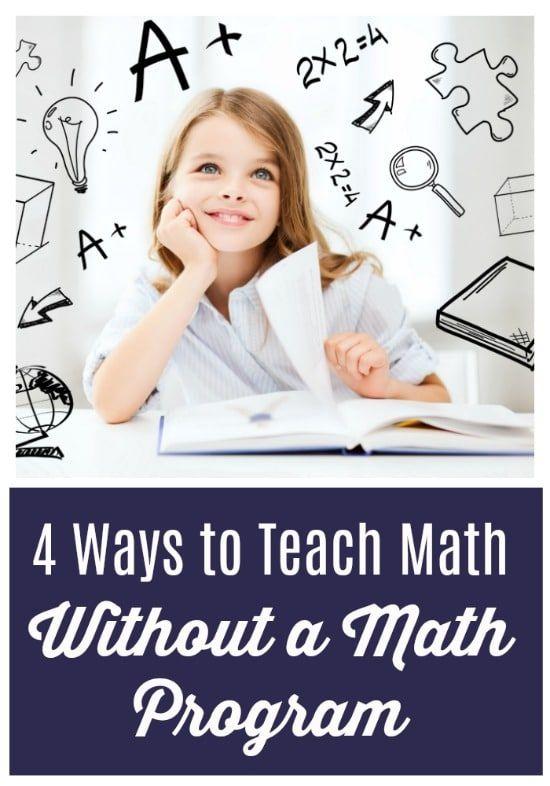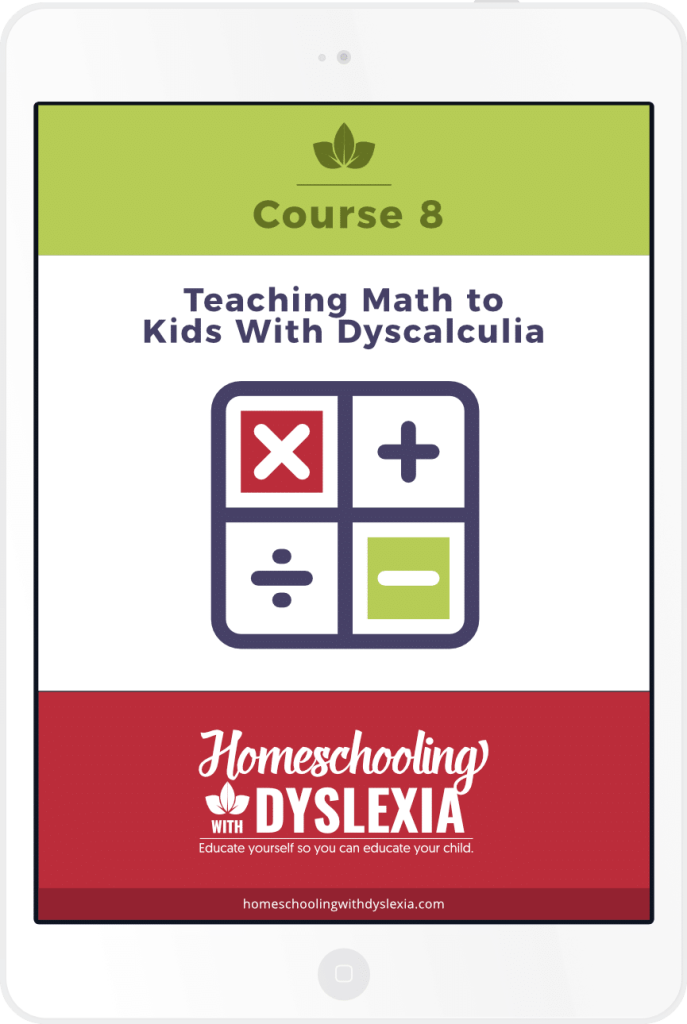Kids who struggle with math often use immature math strategies and need to be taught more effective ways of solving problems to get caught up on math. Here are some ways to teach math without a math program.

Summer is just around the corner and everyone is talking about how to avoid the summer slide. The statistics are staggering. It is estimated that kids forget as much as 30% of what they learned throughout the school year during the blissful months of summer!
I don’t know about you but in our houseful of struggling learners, we cannot afford to lose that kind of ground. In fact, we usually spend a good chunk of summer just trying to get caught up on math!
Teaching Math so it Counts
Since I released my parent class on Teaching Math to Kids With Dyscalculia, I have been inspired to spend more time with my kids working on developing their math sense through games, puzzles, and apps as well as working a few days a week on their regular homeschool math curriculum.
Research has shown that kids who struggle with math usually struggle because they need to be taught better math strategies. Kids with dyscalculia often use immature math strategies and need to be taught more effective ways of solving problems.
Kids who struggle with math also tend to lack math sense. Math sense is an intuitive understanding of how numbers work and how to compare and estimate quantities. Math sense can be encouraged in the younger years through intentional play with toys and games that promote curiosity and problem-solving.
The best kind of encouragement that can be given at home does not include sitting our kids down and giving them extra math work or even buying them math workbooks to finish over the summer.
4 Ways to Teach Kids Math Without a Math Program
- Provide a math rich environment. Blocks, puzzles, tangrams, and other toys that encourage spatial awareness or involves moving objects around, fitting objects together, or rotating objects.These types of toys and activities help kids to observe math patterns.
- Provide time to sit with their own ideas. Providing the resources is important but so is providing the time to explore, build, even get bored are a big part of learning. Kids who are exploring their own ideas tend to consider more complex ideas and be more motivated to experience and learn.
- A math mindset. When I was growing up, my dad (an engineer and natural mathematician) loved asking us kids riddles and math problems – just for fun. No pressure, just a challenge. I remember thinking about these problems, for days sometimes, trying to figure them out.
- Real life math opportunities. A big part of developing math sense is being able to connect math to the real world. Real life provides many opportunities to calculate and estimate. How much do I need to save to go to Disneyland or to buy a Lego set? For the littlest ones just figuring out how many forks and knives we need at the dinner table is good practice.
Math Resources
100+ Best Resources for Teaching Math: I recently compiled a HUGE list of the best math resources.
Teaching Math to Kids With Dyscalculia: My latest parent class full of research-based methods for teaching math and more importantly, math sense, to kids with dyscalculia.
Mastering Math Facts: More information on teaching math facts to kids who struggle with rote memorization.
The Link Between Dyslexia and Dyscalculia
Could it be Dyscalculia? Understanding Dyscalculia

Learn more about how to teach math to kids with dyslexia with my parent education course, Teaching Math to Kids With Dyscalculia. Learn what is causing your child’s struggles with math, what to expect as far as their learning goes, and the best, research-based methods for teaching math.






0 Comments